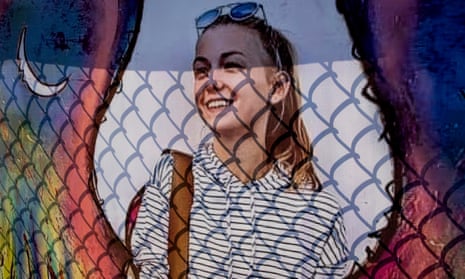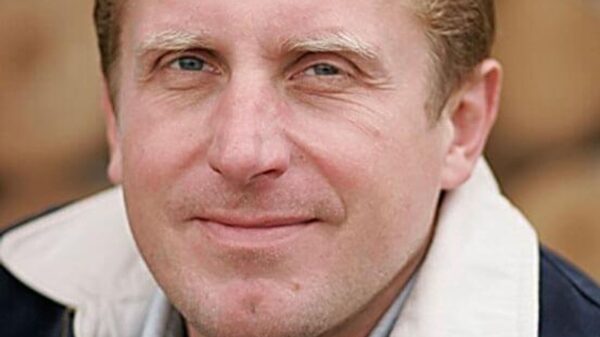Laura Faci with her young son Fraser. Photo: Neil Faci. sport after having children.
Two-time Paralympic champion Laura Faci also says management made her feel “unwanted” when she returned to training after the birth of her son.
This is one of examples where an investigation by Telegraph Sport found that female athletes do not receive adequate support after becoming mothers.
Fashi's paracyclist's comments echo criticism from sailor Clarisse Kremer, who says there is “a lot of work to be done” to improve maternity rights in the sport, which her sponsor relinquished after giving birth.
Other sports personalities who have spoken of the troubling challenges they faced when returning to the sport after having a baby include Icelandic footballer Sara Björk Gunnarsdottir, who won a historic case against former club Lyon earlier this year after they failed to pay her salary during the game. maternity leave, and former Wales midfielder Jade Knight, who retired from international rugby citing a lack of mother support.
 Sarah Björk Gunnarsdottir sued her former club Lyon for not paying her salary while on maternity leave and childbirth. Photo: Getty Images/Jonathan Moscrop I'm taking a step in the right direction, but the experience of people like Fashi shows that there is still a long way to go before athletes feel confident that they can have children without fear of compromising their lives. career.
Sarah Björk Gunnarsdottir sued her former club Lyon for not paying her salary while on maternity leave and childbirth. Photo: Getty Images/Jonathan Moscrop I'm taking a step in the right direction, but the experience of people like Fashi shows that there is still a long way to go before athletes feel confident that they can have children without fear of compromising their lives. career.
“I was forced to do it. feeling unwanted after pregnancy'
When UK Sport announced its new pregnancy guidelines in November 2021, it marked a watershed in the campaign to improve maternity rights for female athletes in Olympic and Paralympic sports.
Along with a return timeline and associated risk assessment, the new guidance ensures that pregnant athletes receive full APA funding, a lottery-funded grant that goes directly to athletes and contributes to their living and athletic expenses throughout their pregnancy. and up to nine months postpartum.
But Fashi, a Liverpool native and two-time Paralympic gold medalist, says she was “disappointed” with the postnatal support British Cycling offered her. , after the birth of a son in October 2022.
“After giving birth, my experience was not great. I feel that British cycling has almost discouraged me from returning to the sport,” she admits. “I almost felt like I wasn’t welcome, that they didn’t want me back on the team. They've found someone to replace me in tandem, and my desire to come back is giving them more headaches, so they almost want to pretend it's not happening.”
 Laura Faci (right) won gold in the women's 3000m individual pursuit at the Tokyo Paralympics. Photo: Getty Images/David Fitzgerald
Laura Faci (right) won gold in the women's 3000m individual pursuit at the Tokyo Paralympics. Photo: Getty Images/David Fitzgerald
Faci says that while British Cycling followed UK Sport's improved guidelines and provided her with appropriate care throughout her pregnancy, she did not receive support from the governing body after giving birth, especially when it came to her mental health.
“I had a lot of postpartum problems, I desperately wanted to breastfeed my son and it was very hard for me. The NHS referred me for postpartum depression, but during that time British Cycling did not receive any psychological support,” she says.
Fashi, who intends this summer with her husband and fellow Paralympic Neil Fashi to go to the Glasgow Cycling World Championships expressed her disappointment that British Cycling did not go beyond UK Sport's guidelines and offer more personal care.
“It's the little things. You are here to win medals, and if you don't win medals, you are just a number. These past few months have been a real reminder that, on a personal level, they don't care about you.”
When asked for comment, British Cycling stated that the well-being of their riders is their “number one priority”. British Cycling Director Stephen Park CBE said: “Our coaches and wider support teams have worked incredibly closely with Laura and are now supporting her with a collaborative and progressive return to full training.”
“Riders were regularly reminded of the additional mental health and medical support available to them if needed. We will continue to listen to Laura and others to see where we can further enhance the support we offer.”
UK Sport also reaffirmed its commitment to supporting mothers “both on and off the field of play.”
outside of it” after Fasha's experience and announced that they will publish updated recommendations this summer.
“The publication of our pregnancy guide is a major step forward and so far 13 athletes across 12 sports have received support during pregnancy,” said UK Sport CEO Sally Munday. “We are determined to continue making progress on equality and building a diverse and inclusive Olympic and Paralympic family.”
“Women don’t want an advantage, they just want a chance”
Clarissa Kremer is no stranger to the hurdles athletes face after having children. The French yachtswoman, who is the fastest woman to sail solo around the world, has been ruled out by her sponsor, Banque Populaire, ahead of the 2024 Vendée Globe, a sailing race so challenging it has been dubbed the “Everest of the Seas”. gave birth last year. Banque Populaire insisted that sponsoring Kremer was too much of a risk after a change in qualifying rules for the race put her at a disadvantage for not participating in sailing.
Kremer believes that the main problem is that women are considered incapable of having a challenging career and a child at the same time. “Becoming a mother is not a disease, it is not a wound,” she laughs. “There is a lot of work to be done on the perception of what it means to have a child and also to have an ambitious career. For some people, it is perfectly normal for a woman to have to choose [between two options] and this needs to be fixed.
 Clarissa Kremer says women shouldn't have to choose between a successful career and having a baby. Photo: Getty Images/Damien Meyer
Clarissa Kremer says women shouldn't have to choose between a successful career and having a baby. Photo: Getty Images/Damien Meyer
“We are not asking for any benefits or privileges. Of course, this will always be a problem, but you just want the rules and the general environment in your sport to make it possible.”
Kremer, who now hopes to qualify for the Vendée Globe next year after being joined by new sponsor L'Occitane en Provence, hopes her experience will help women in the future. The World Sailing Trust has made six recommendations to support a more effective maternity policy in sailing, including helping to return to the sport after childbirth, and Kremer says Vendée Globe organizers will also consider maternity rights in the future.
“Obviously I didn’t choose what happened to me,” she said. “I think the echo he had shows that this is a huge topic for a lot of women, so in that sense I am happy and proud to have used my voice. It's a privilege to have a platform.”
'Innovative' policies need to be tested
Some sports, such as rugby and football, have responded to growing calls for better maternal rights for elite athletes by introducing new policies to better protect players.
The Football Association's policy, introduced in 2022, is that any Women's Super League or Championship player on maternity leave will be paid 100 per cent of their weekly wages for the first 14 weeks.
The Rugby Union described its approach as 'groundbreaking', with a new policy guaranteeing 26 weeks of full pay for England players on maternity leave and a contract extension of at least 12 months if subject to review.
RFU director Paula Grant said: “A family and a professional athlete should not be mutually exclusive. Our goal is to help players feel supported in their decision to become parents.”
However, these changes do not represent a complete solution. The new policy only applies to contracted England players; There is no uniform maternity policy for the Allianz Premier 15s, the top tier of indoor rugby in England, so those who are not eligible for the Red Roses or are not contracted national team members will not have access to those rights.< /p>
Policies introduced by RFU and FA are also yet to be extensively tested due to their recent age. England lockdown Abby Ward has described herself as a 'guinea pig' for the RFU as she is the first Red Roses player on maternity leave and it is likely that the policy will be adapted based on her experience.
While positive changes are taking place, there seems to be a long way to go before maternity rights in sport are no longer an issue.
Women in sport: a form experience




























































Recent Comments